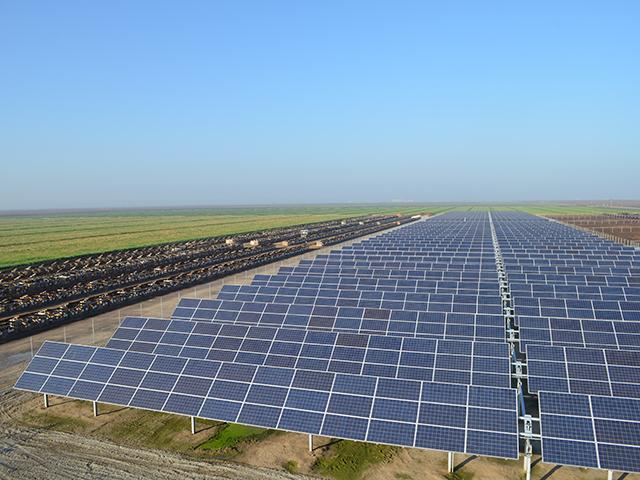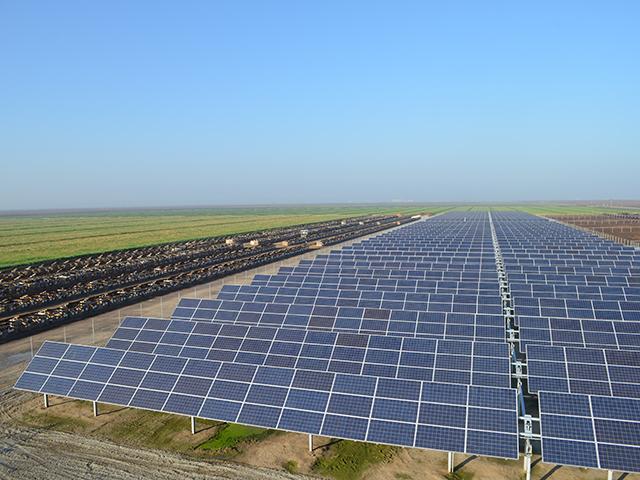Ag Policy Blog
COP Leader Wants US Tax Dollars for Green Energy While Making Oil Deals Elsewhere
The leader of this year's United Nations climate conference in United Arab Emirates wants the Biden administration to sign off on some green energy deals in the U.S. while also is looking to use the annual international meeting to make oil and natural gas deals with other countries.
Documents first published Monday by the Centre for Climate Reporting lay out some briefing points by the United Arab Emirates (UAE) climate-negotiating team for Sultan Ahmed Al-Jaber, CEO of the Abu Dhabi National Oil Co. (ADNOC), who also will serve as president of this year's "COP28" summit. The documents suggest UAE would like the Biden administration to back its green-energy deals in the U.S., including allowing the UAE renewable-energy company access to federal grants.
Officially known as the United Nations "Conference of the Parties," the conference is holding its 28th meeting on climate change starting Thursday in Dubia, UAE. The event will draw political leaders from nearly 200 countries starting Thursday with as many as 70,000 or so people expected to participate in the two-week conference.
Food and agriculture also are supposed to play large roles in this year's COP. The UAE has the "Emirates Declaration on Resilient Food Systems, Sustainable Agriculture and Climate Action." Brazil is proposing a plan to create a fund that would preserve tropical forests, but Brazil also has a plan that would open up as many has 100 million hectares (247 million acres) of cerrado for future cropland.
The last COP of major significance was Paris in 2015 when leaders from 196 countries agreed to limit global temperature increases to 1.5 C. (2.7 F). That set a target for countries to reduce greenhouse gas emissions 45% by 2030, according to the United Nations.
After attending the past two conferences, President Joe Biden is expected to miss the COP28 this year.
P[L1] D[0x0] M[300x250] OOP[F] ADUNIT[] T[]
But a lot of attention has focused on the role of Al-Jaber as president of the COP, given that United Nations' leaders frequently call for greater reduction of fossil fuel emissions to lower greenhouse gases.
BBC in England and the Centre for Climate Reporting first reported Monday about a series of talking points prepared for Al-Jaber that highlight deals Al-Jaber's oil company seeks new deals with other countries, especially to increase sales of liquid natural gas (LNG). The talking points with different countries was provided by a whistleblower, the BBC reported.
The UAE renewable energy company Masdar also has some deals it wants to reach as well. That includes having conversations between Al-Jaber and the Biden administration's main climate negotiator, John Kerry. The talking points indicated Masdar wants the Biden administration to help Madar clear some proposed investments in areas such as Sustainable Aviation Fuels and green ammonia through the federal government's committee that examines certain foreign investments, the Committee on Foreign Investments in the United States, known as CFIUS.
"We hope to have the support of the administration for CFIUS approvals," a background briefing for Al-Jaber stated.
MASDAR also is looking to tap U.S. taxpayer dollars. The company wants support from the Biden administration "in future joint project applications for DOE grant funding of industrial decarbonization proposals."
While looking for U.S. funding and support for renewable energy projects, the UAE talking points on other countries highlight new sales of oil and natural gas. On China, the talking points cite ADNOC already has $15 billion in sales to China in the past year, including 83% of that crude oil and ADNOC views Chinese companies as "among our most strategic partners." ADNOC wants to develop joint international LNG growth with China, citing other opportunities in Mozambique, Canada and Australia.
The documents show ADNOC is focused on expanding LNG markets in Europe, Africa and Asia. ADNOC also is offering to expand LNG trading with Mexico. Mexico is a large LNG importer and gets the majority of its imported LNG from the United States.
The UAE talking points also cater to other oil exporters as well. The message UAE wants to get across to Saudi Arabia and Venezuela: "There is no conflict between sustainable development of any country's natural resources and its commitment to climate change."
The Biden administration cites that the U.S. is on path to reduce its greenhouse gas emissions 40% by 2030, driven by changes in the economy from the Inflation Reduction Act.
There are already a lot of questions over whether countries will keep temperatures from rising 1.5 C before mid-century.
Also see, https://climate-reporting.org/…
Chris Clayton can be reached at Chris.Clayton@dtn.com
Follow him on X, formerly known as Twitter, @ChrisClaytonDTN
(c) Copyright 2023 DTN, LLC. All rights reserved.






Comments
To comment, please Log In or Join our Community .